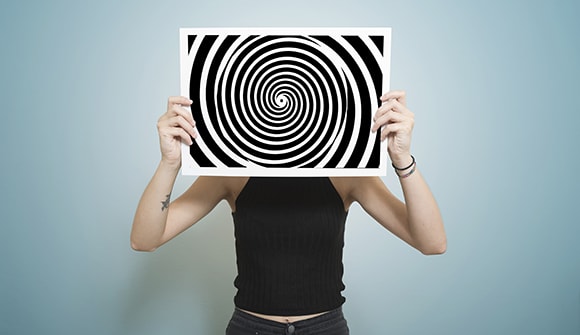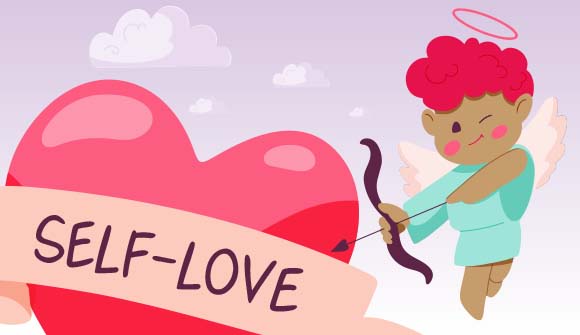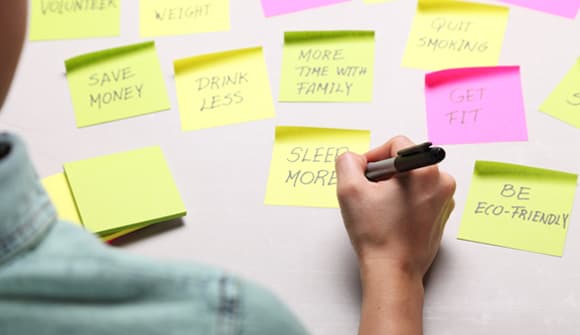'Ugh, you’re so ADHD!’
Misusing mental health labels can add to stigma and actually do harm.
Article Author: Katie McPherson
Article Date:

“I can’t leave the dishes like this; I’m too OCD.”
“You’re crazy!”
“Oh my gosh, my mom is such a psycho.”
“You’re acting bipolar today.”
It’s common to hear phrases like these in everyday conversations that have nothing to do with mental health, but every time they are said, they impact mental health nonetheless. More specifically, they may ultimately keep those who need it from seeking care.
So how does a figure of speech turn into a stigma? George Royal, PhD, a psychologist at Baptist Behavioral Health and chief of Psychology at Baptist Medical Center Jacksonville, said it’s all about how those with mental illness perceive themselves, which is affected by how others talk about them.
“One of the things about stigma is that it can categorize how the individual perceives himself or herself, and how others view us. I think people worry more about social stigma than self-stigma. Self-stigma is when the person perceives that he or she will be discriminated against for having emotional issues, like anxiety or depression,” he explained. “Stigma can increase those problems, because you’re afraid to get help — when you don’t want to be criticized by others, you may not seek treatment. Stigma makes a bad problem worse.”
Using diagnostic labels — everything from crazy and psycho to “schizo” and more — is part of that problem. Hearing mental health terms used negatively, even in conversations that aren’t meant to be about mental health, can signal to others that mental illness isn’t accepted.
“There’s nothing wrong with using clinical terminology when it helps define a problem, like schizophrenia, because it’s used to help clinicians find and use appropriate treatment strategies,” said Dr Royal. “I do believe misusing labels lead to misunderstanding, prejudice, embarrassment and stigma. Because of that, I think people avoid seeking mental health services because of embarrassment, and they don’t want to be labeled.”
Labeling people can hurt
Misusing labels is not only potentially hurtful bit promotes myths or stereotypes about certain conditions.
For example, obsessive-compulsive disorder (OCD) isn’t just a preference for cleanliness and order. OCD can interfere with someone’s work, school, and relationships by causing repeated thoughts, urges, or mental images that lead to anxiety (like aggressive thoughts toward others or fear of germs). Obsessive thoughts lead to compulsions in an attempt to stop the thought, like excessive cleaning or handwashing, counting, and more.
“I very, very rarely have heard people say so-and-so is crazy or psycho. It is much more common for people to say, ‘Oh, I’m OCD’ or, ‘I’m a little bipolar.’ They use the diagnostic labels a little more freely, but that is a real problem.”
Dr. Royal provides the example of mental retardation, which is used to define people with an IQ below 70. It began as a clinical term but was used conversationally as an insult for long enough that now he feels uncomfortable using it even in the clinical sense. It’s widely known that the R-word is unacceptable to call others. His example shows that misusing clinical labels can be hurtful, even if a culture doesn’t acknowledge it yet.
“Unfortunately, I often hear diagnostic labels such as bipolar, ADHD and OCD used in a derogatory manner rather than as a descriptive means to obtain mental health services,” says Dr. Royal. “People use those terms as criticism. ‘He’s just so OCD, he has to clean his desk out every day.’ Or if someone gets angry, someone else might call them ‘bipolar.’ People view mental health problem as a negative thing. These are very unhelpful things. What they need is support, not criticism or negativity.”
Ultimately, removing diagnostic labels from our vocabulary — unless we’re actually talking about them in a medical sense — is a small change to make to move the conversation about mental health in a positive direction.
“What I believe is that openness and education about mental health issues are the first steps in promoting understanding,” Dr. Royal said. “Once the stigma has been alleviated, we have to work on providing readily available access to services, and as we educate people, we can begin to challenge stereotypes and foster greater willingness to seek support.”
If you or someone you love is concerned about mental health, call 904.376.3800 to find a Baptist Behavioral Health provider who can help.



